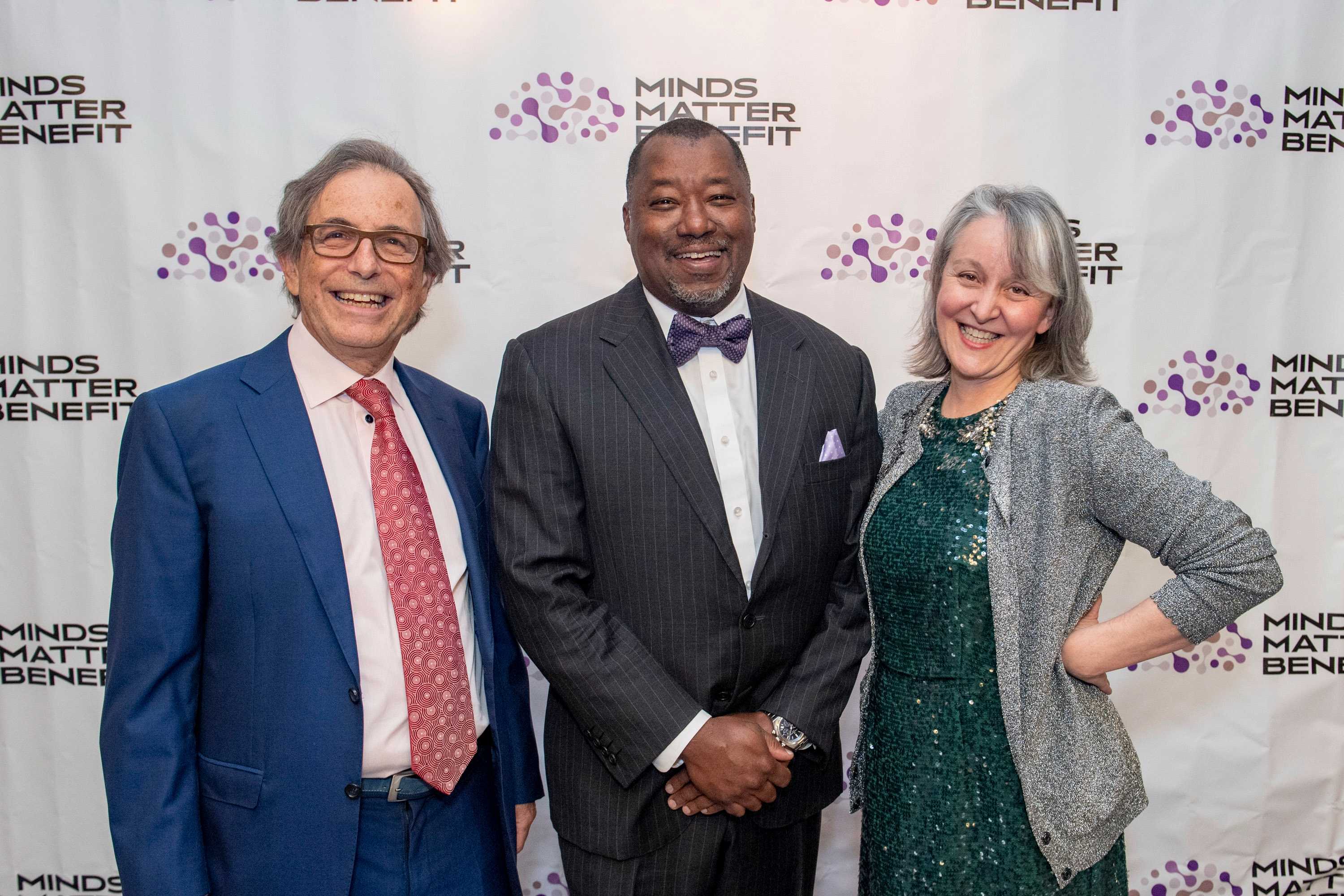Minds Matter Benefit Dinner
Save the date for Minds Matter 2026!

To purchase tickets to the event through Northwestern Memorial Foundation click here.
To purchase tickets to the event through Northwestern University Feinberg School of Medicine click here.
To get involved in Minds Matter 2026, reach out to laura.jaros@nm.org.
Minds Matter 2025
More than 380 philanthropists, physicians, and patients attended the 17th Annual Minds Matter benefit on May 9, raising more than $789,000 to support brain tumor research and patient care at the Lou and Jean Malnati Brain Tumor Institute (MBTI) of the Robert H. Lurie Comprehensive Cancer Center of Northwestern University at Northwestern Memorial Hospital.
Held at The Ritz-Carlton, the event celebrated Malnati Brain Tumor Institute’s research accomplishments and reputation for providing world-class care to patients with brain tumors. Every year, MBTI admits more than 3,000 new patients with brain tumors and performs more than 700 brain tumor surgeries.
The event featured a dinner, auction, and paddle raise, as well as remarks from MBTI co-directors James P. Chandler, MD, and Amy Heimberger, MD, PhD.
This year, the MBTI established the Transformational Impact Award to honor someone who has profoundly impacted scientific progress and patient care. Dr. Chandler presented the inaugural award to Jean Malnati-Miller, who has been a staunch advocate for cancer research and care since her husband, Lou Malnati, was treated for melanoma at Northwestern in the 1970s. In brief remarks, she said that she was attending the benefit to represent Lou.
“He would've loved this, and he would've been here to thank you all,” she said after accepting the award, presented by Dr. Chandler. “I'm here to thank you for him and for everybody that supports the Brain Tumor Institute.”
In 2017, the Lou Malnati Cancer Research Foundation made a transformational gift to the institute to help advance education, research and patient care at the Brain Tumor Institute. The Lou Malnati Cancer Research Foundation has been instrumental in the cancer research community, raising more than $4 million to benefit organizations including MBTI.
Read the rest of the event recap here.
To access photos from the event click here.

Thank you to the Minds Matter Sponsors!


| Joseph and Bessie Feinberg Foundation |
| Northwestern Memorial Foundation |
| RDM Companies and Robert Mosky |
| Northwestern Medicine Department of Neurology |
| ABS Medical |
Support Brain Tumor Research Year-Round
You don't have to wait to make a difference; there are a number of different ways to support MBTI year-round that can be found on our Donate page.